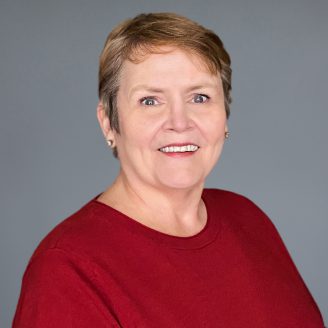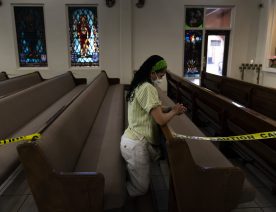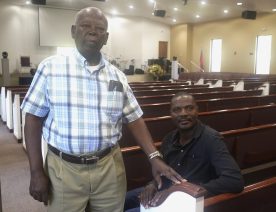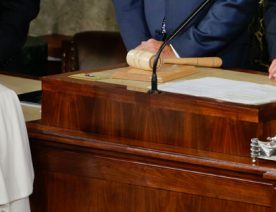
June 3, 2022
The attitudes of many conservative Catholic bishops in the United States are not shared by most Catholics. A majority of lay Catholics support abortion rights, oppose denying Communion to politicians who support abortion rights, and favor greater inclusion of LGBT people.
On May 20, the archbishop of San Francisco announced that he will no longer allow U.S. House Speaker Nancy Pelosi to receive Communion because of her support for abortion rights. Only 31% of lay Catholics agree that politicians supporting abortion rights should be denied Communion, while 66% say they should be allowed access to the sacrament.
The view of Catholic Americans on abortion rights and Roe v. Wade are in line with the general public. About two-thirds of Catholic adults say abortion should be legal in all or most cases. Mainline Protestants and religiously unaffiliated Americans are more likely than Catholics to say abortion should be legal in all or most cases. But all three groups differ significantly from evangelical Protestants. Still, even among evangelical Protestants, few say abortion should be illegal in all cases.
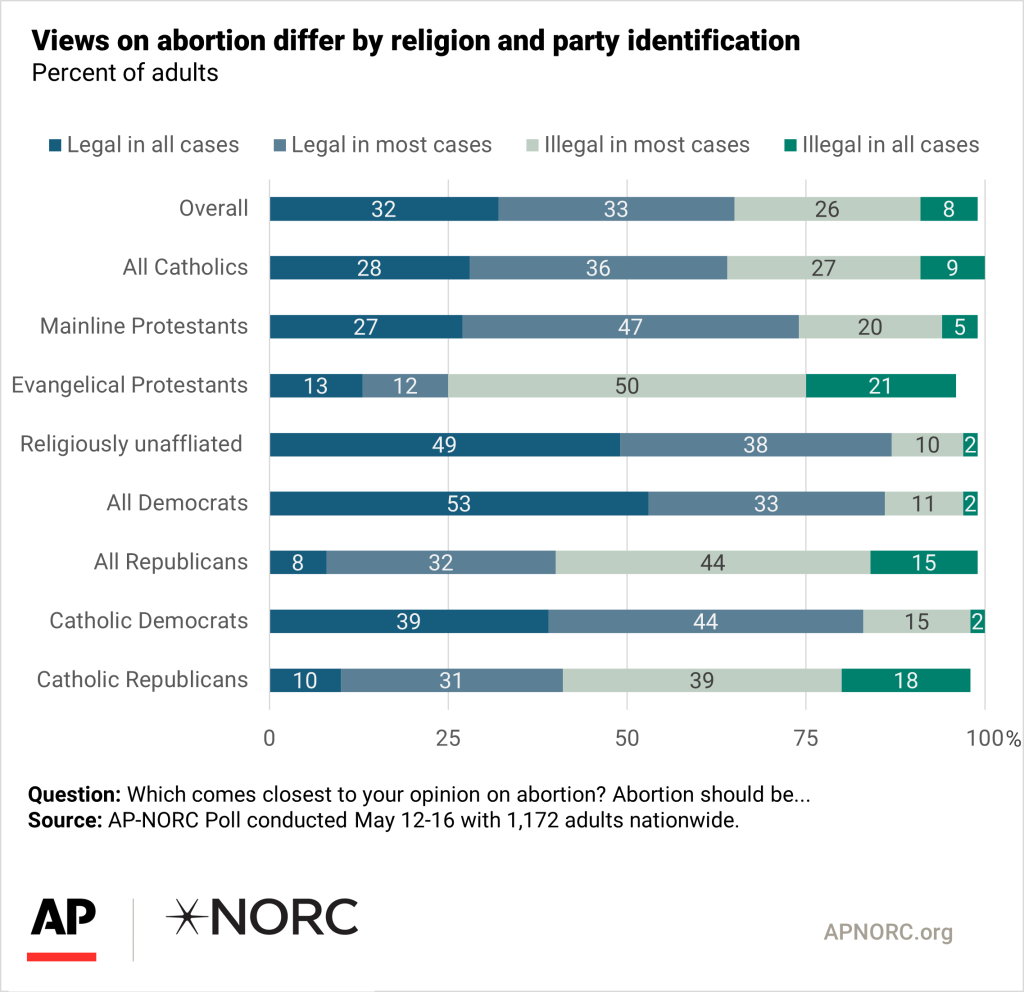
The survey was conducted after a draft opinion suggesting a majority of Supreme Court justices support overturning the 1973 Roe v. Wade decision that legalized abortion nationwide was leaked. Like views on abortion in general, there are religious and partisan differences in the public’s attitudes toward the Roe v. Wade decision.
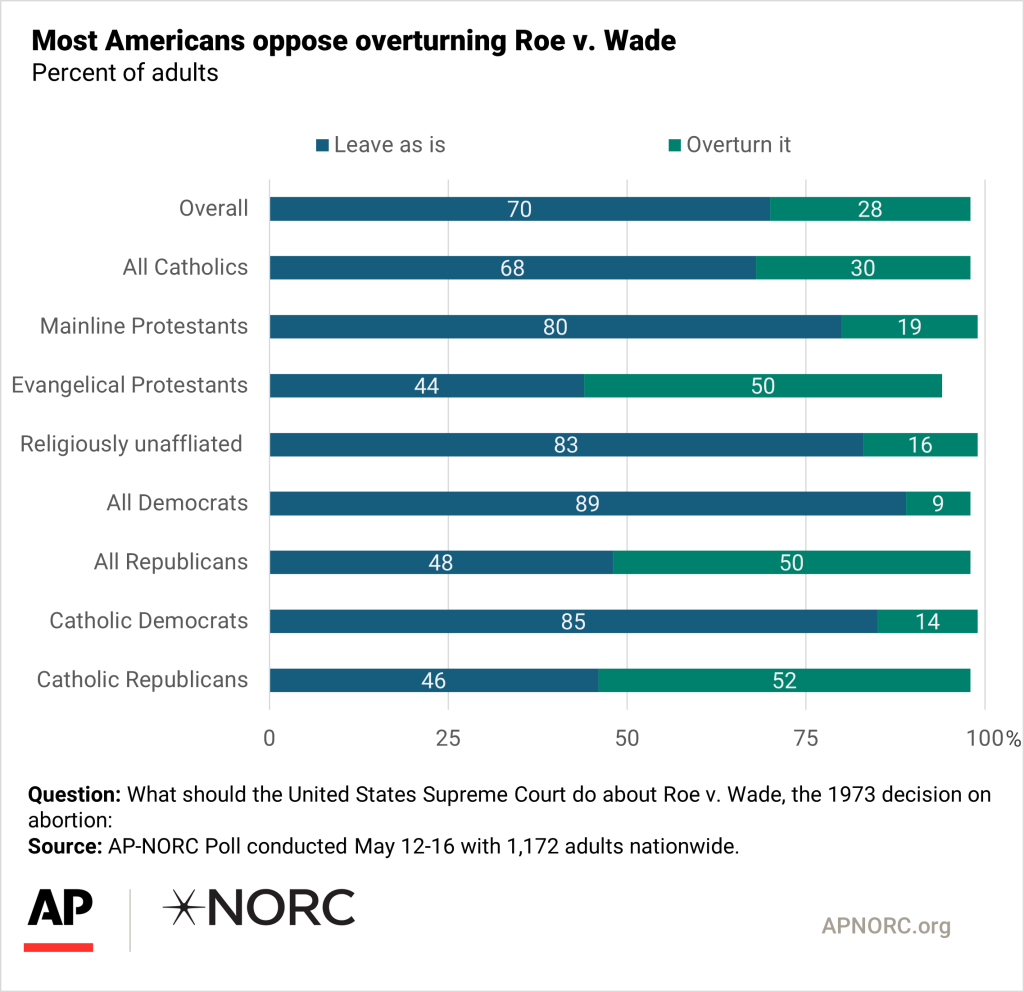
Most American Catholics, including those who attend Mass regularly and those who attend less frequently, disagree with denying Communion to Catholic politicians because of their stance on abortion rights or the death penalty, as well as refusing to give the sacrament to LGBTQ Catholics or those who have gotten divorced and then remarried without getting an ecclesiastic annulment. Republican Catholics are divided: 47% say Catholic politicians should be forbidden Communion based on their opinion on abortion rights and 47% say they should not.
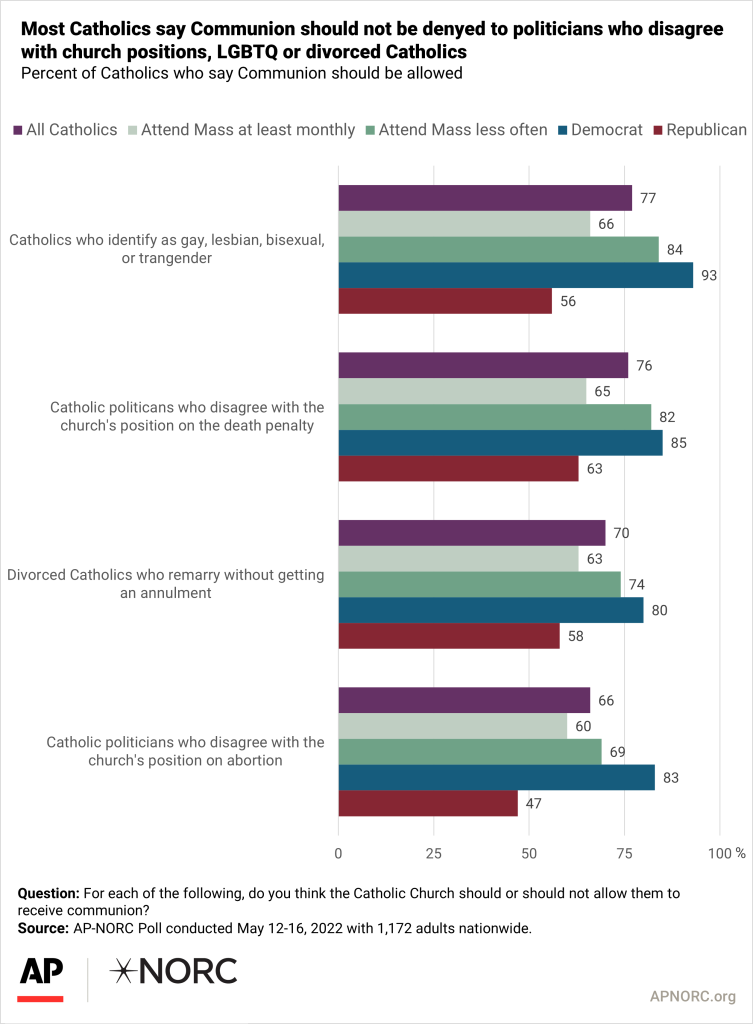
Pope Francis hasn’t publicly weighed in on the expected U.S. Supreme Court ruling on abortion rights, but in the past he has denounced the politicization of Communion.
Overall, 54% of Catholics have a favorable opinion of Pope Francis, 21% have an unfavorable opinion and 25% say they don’t know enough about him to say.
Many Catholics don’t have an opinion on the pope’s handling of abortion, church doctrine on gays and lesbians, immigration, and climate change, but there are differences by party. Catholic Republicans are more likely than Catholic Democrats to approve of Pope Francis for his handling of abortion, while Democrats are more likely than Republicans to approve of his handling of immigration, climate change, and poverty.
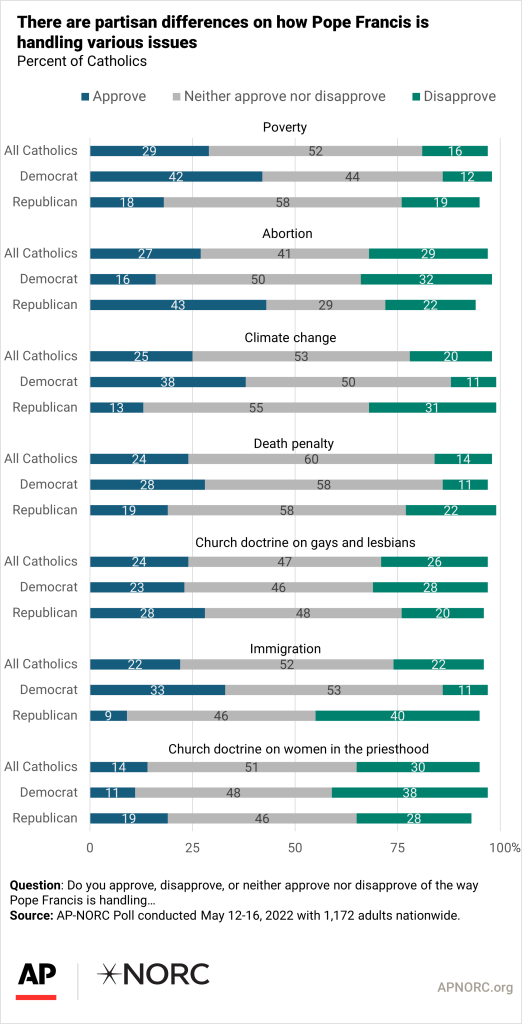
Catholics who attend Mass at least monthly are less inclined to support the ordination of women, gay men, or divorced people, while Catholics who are less observant strongly favor allowing women, gay men, and divorced people to become priests.
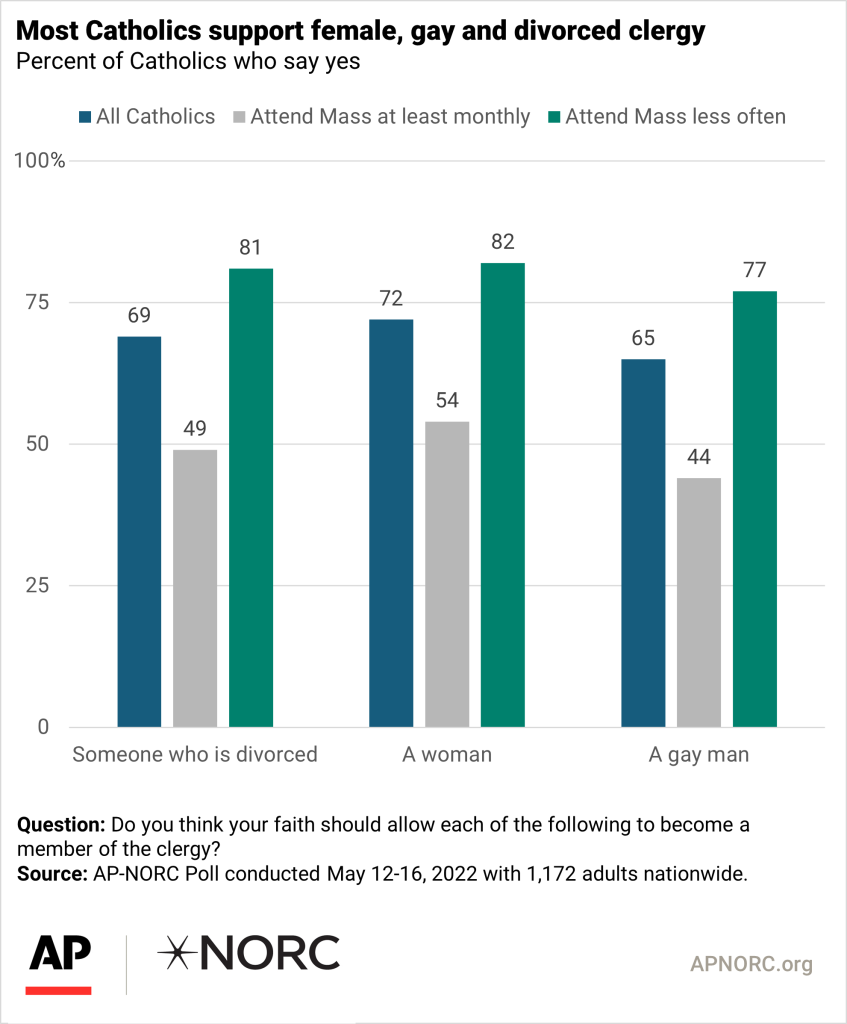
There is also strong support for women and divorced clergy among mainline Protestants and evangelical Protestants. But while 66% of mainline Protestants say their faith should allow a gay man to become a member of the clergy, 66% of evangelical Protestants are against allowing gay clergy.
Most Catholics say the Catholic Church has had at least some influence in their lives in general and on their views on social issues. But a majority say the church has had little influence on their political views.
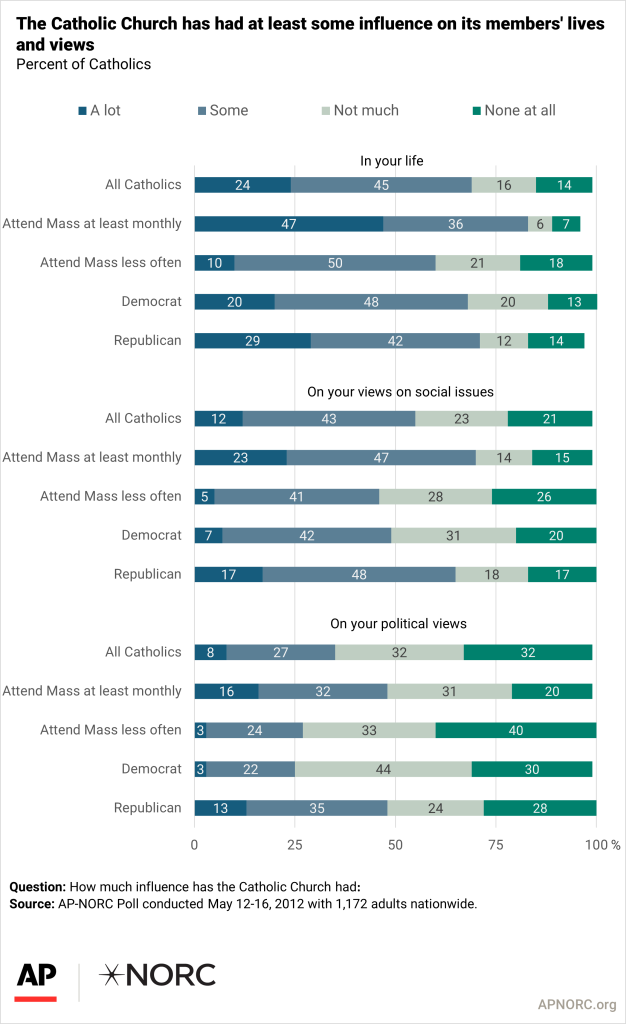
Catholic adults and mainline Protestants look similar to U.S. adults overall in their views of many social and political government policies. But there are differences among evangelical Protestants and those without a religious preference.
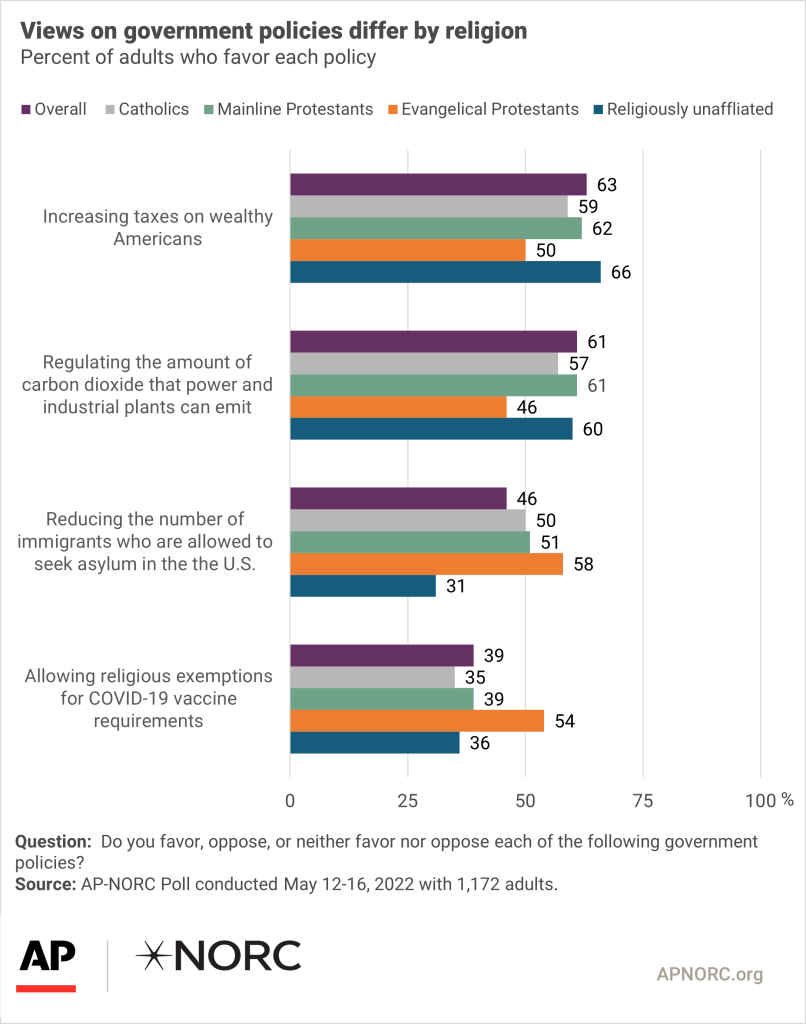
Most Americans say the Catholic Church has the right amount of influence in this country when it comes to President Biden, family life, what children are taught in school, and the Supreme Court. Catholics are less inclined than the general public to say the church has too much influence on each of these.
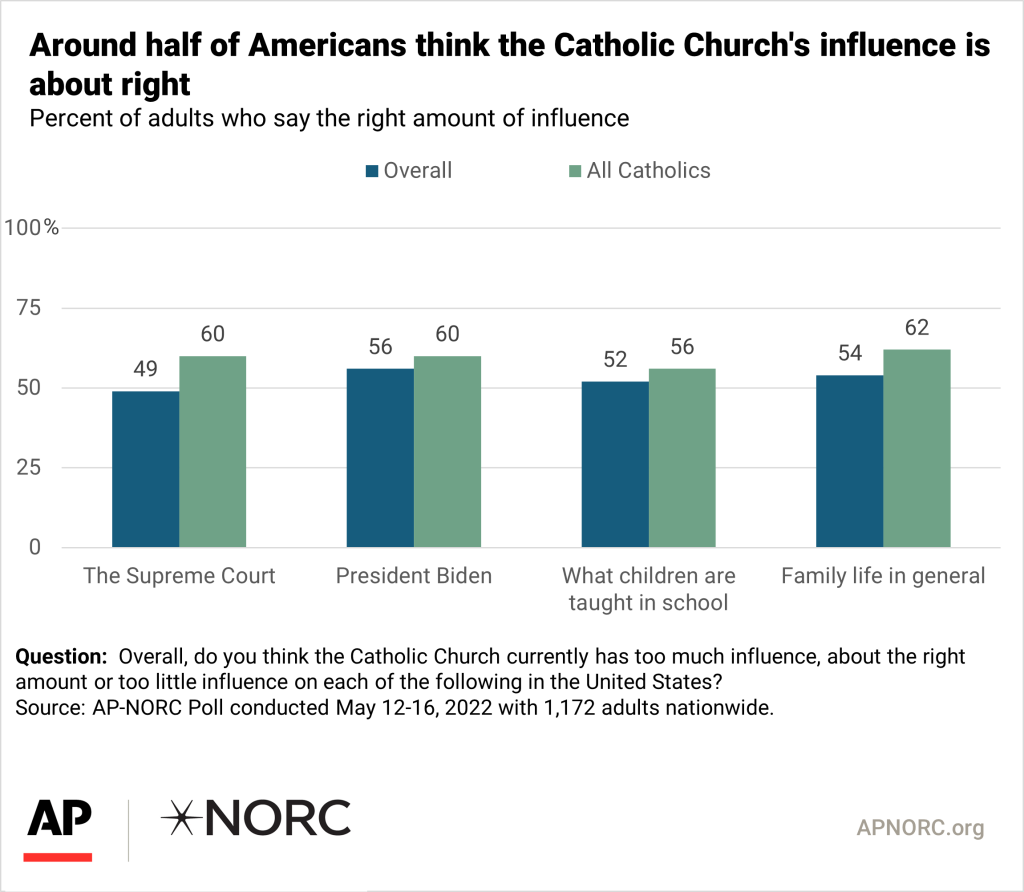
As the Pope and Catholic Church leaders continue to contend with decades of revelations about priests who sexually abused children and the bishops and other religious superiors who covered up those crimes, 51% of all Americans and Catholics disapprove of how the Catholic Church is handling the accusations. Only 13% of the public overall and 20% of Catholic approve of how the Catholic Church is dealing with these charges.

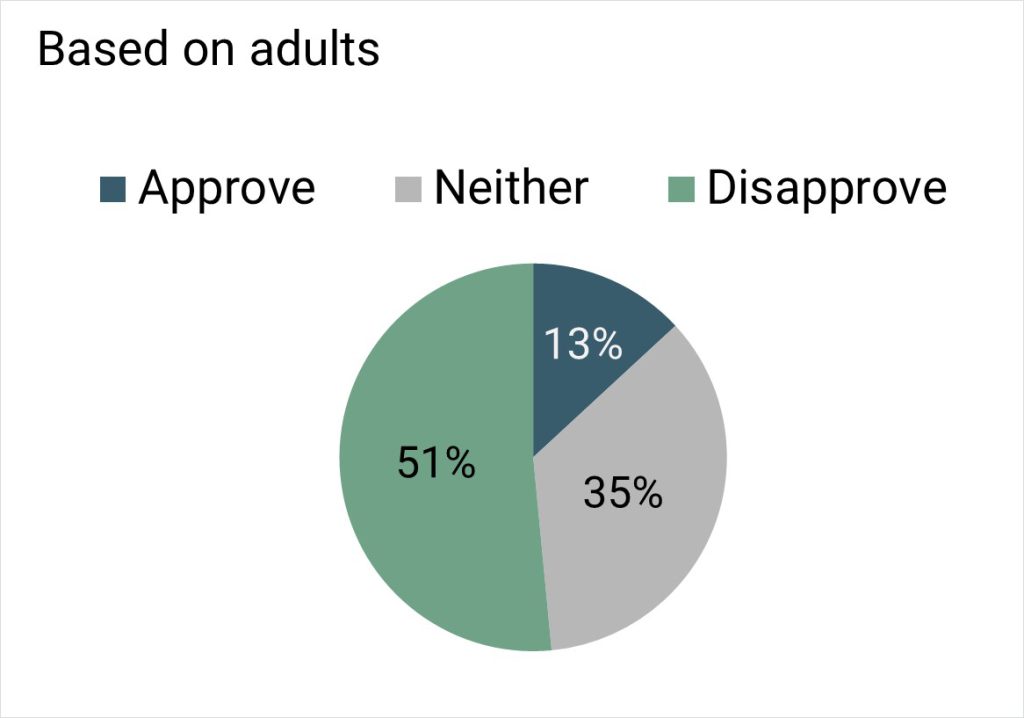
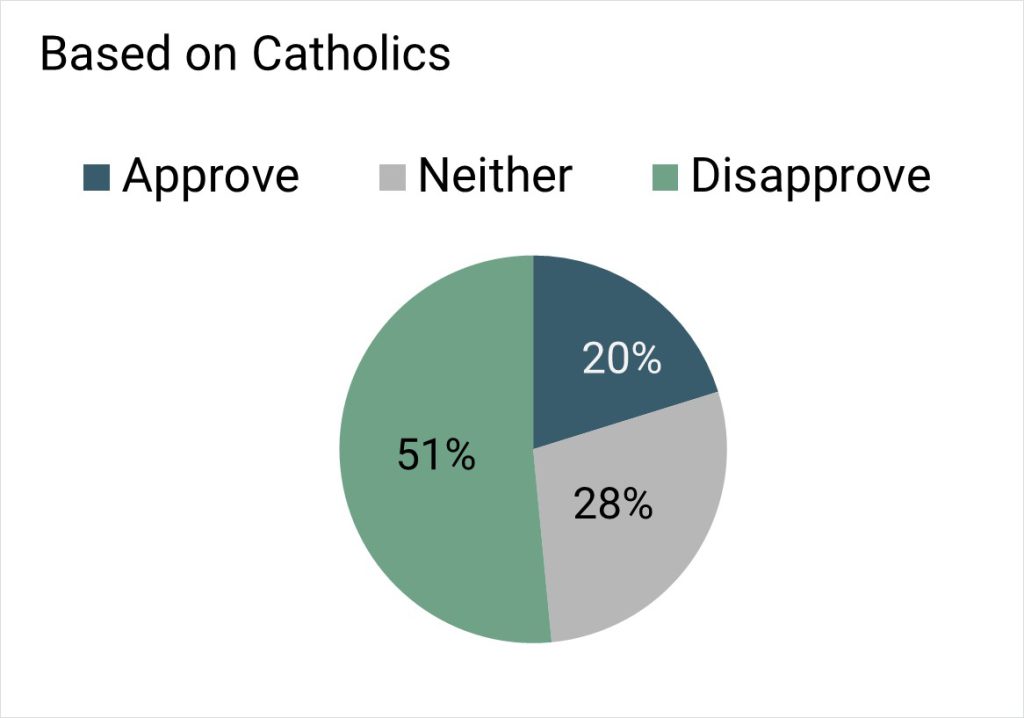



Thirty-four percent of Americans say their opinion of the Catholic Church has deteriorated over the past five years, while only 8 percent have a better view of the church and 55% say their attitude has not changed. Among Catholics, 26% have a more negative view of the church compared with five years ago, 17% have an improved opinion and 57% feel the same way.
Among all Catholics, 48% say their attendance levels are similar to five years ago, while 37% say they’re attending less often. Just 14% say they are attending more often. That’s similar to how Protestants and other Christians — mainline and evangelical — describe their habits compared with five years ago.
The nationwide poll was conducted May 12-16, 2022 using the AmeriSpeak® Panel, the probability-based panel of NORC at the University of Chicago. Online and telephone interviews using landlines and cell phones were conducted with 1,172 adults. The margin of sampling error is +/- 4.0 percentage points. Catholic respondents were sampled at a higher rate than their proportion of the population for reasons of analysis. The overall margin of sampling error for the 358 completed interviews with Catholic respondents is +/- 7.4 percentage points.
- Suggested Citation: AP-NORC Center for Public Affairs Research. (June 2022). “Most Catholic Americans disagree with hardline positions of church leadership [https://apnorc.org/projects/most-catholic-americans-disagree-with-hardline-positions-of-church-leadership/]




